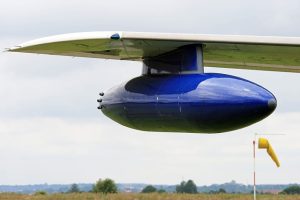
Airplanes don’t run on the same type of gasoline as cars, trucks and other road vehicles. Whether commercial or private, most airplanes use either jet fuel or aviation fuel. They are the two most common types of airplane fuel.
When flying, airplanes will pump fuel from their respective tanks while feeding it to their engines’ combustion chambers. As the fuel mixes with air, it will burn inside of the combustion chambers, thus creating hot exhaust gases. While they are used for the same purpose, however, jet fuel and aviation fuel aren’t the same.
What Is Jet Fuel?
Jet fuel is a type of airplane fuel that’s comprised of either unleaded kerosene or a naphtha-kerosene blend. The former is known as Jet A-1 fuel, whereas the latter is known as Jet B fuel. Both Jet A-1 and Jet B fuel can be used in compression ignition engines or turbine engines. In the United States, Jet A-1 is the most common.
What Is Aviation Fuel?
Aviation fuel is a type of unleaded airplane fuel. Also known as “avgas, it’s designed for use in piston-engine airplanes. Piston engines have spark plugs. The spark plugs work by producing an initial spark to ignite the mixture of fuel and air. This ignition creates combustion that propels the airplane forward.
Differences Between Jet Fuel and Aviation Fuel
Jet fuel and aviation fuel differ in several ways. For starters, jet fuel is unleaded, whereas aviation fuel is unleaded.
Why is aviation fuel leaded exactly? The lead components act as anti-knocking agents. They help to protect engines from pre-ignition or knocking. Only aviation fuel is leaded. Jet fuel uses an unleaded formula that lacks these lead components.
Because it contains lead components, aviation fuel poses environmental concerns. Lead is toxic to humans and animals. According to the U.S. Environmental Protection Agency (EPA), lead waste can harm the growth and production of plants as well. This has prompted many companies to switch to jet fuel when given the option.
Jet fuel and aviation fuel are also used in different types of airplanes. As previously mentioned, aviation fuel is typically used in piston-engine airplanes. Piston-engine airplanes fly at lower altitudes and slower speeds than their jet-powered counterparts. Jet fuel lives up to its namesake by being used in jet engines. Jet-engine airplanes typically use jet fuel. From commercial jets to cargo aircraft, military airplanes and more, jet fuel is the leading fuel type for jet-engine airplanes.



